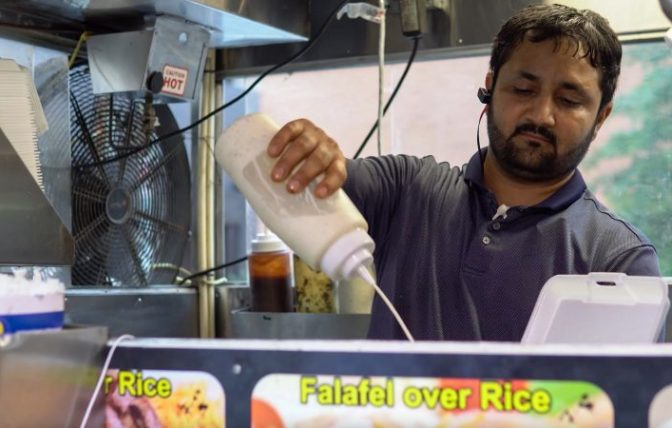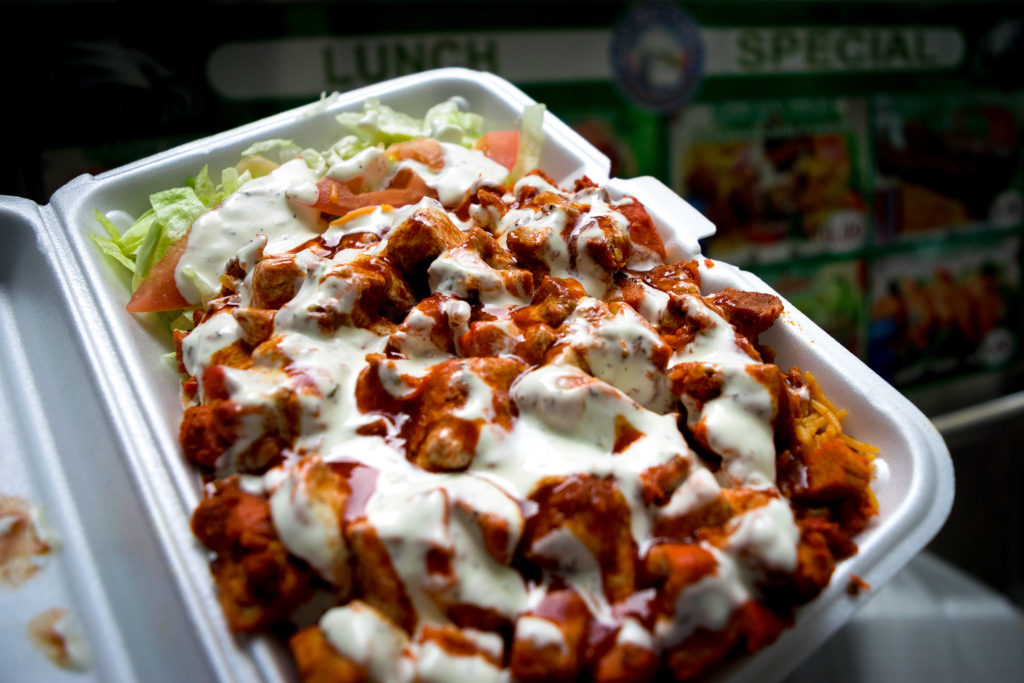
 "
"

 "
"

This fall, halal carts were back in full force on Philadelphia’s streets, but as winter approaches, many owners and workers are still struggling.
The vendors who run the small mobile kitchens are mostly overjoyed to be able to serve customers once more, according to Billy Penn. Recovering from the pandemic has not been easy, with many downtown offices still vacant and a strained supply chain driving up prices.
Prices have risen as a result of disruptions in global supply chains, with the cost of both wholesale ingredients and serving materials soaring.
“Everything went up in price,” said one worker, who has worked at a griddle near City Hall for the past eight years. Because he does not own the company, he requested anonymity in order to speak freely. “The chicken box that we used to buy was $32. [At] maximum it would reach $40 or $45 a box,” he said, noting that the same box now costs $90 or more. Even styrofoam serving trays have become more expensive.

As a result, customers in Philadelphia will notice that a typical lamb or chicken over rice platter now costs $7 or $8 at most halal carts, rather than the $6 it used to cost.
But it’s only a little more expensive, and many people will find the price point appealing.
“I think the value is actually really great in the halal carts,” said Amay Tripathi, a student at the University of Pennsylvania. “It’s just a lot of food. It’s good enough to last you a few meals.”
People like Tripathi make up a large portion of the customer base for halal cart workers, especially in University City. Pricing is influenced by knowledge. Despite a doubling of wholesale costs, the price of platters has only increased by 25%.
“We think about the students, this is not a businessman’s view,” said Aamir Khan, who works on the corner of 33rd and Market streets in a brightly colored green truck. “We want to give you good food but for a cheap price.”